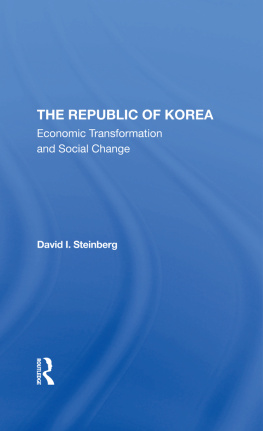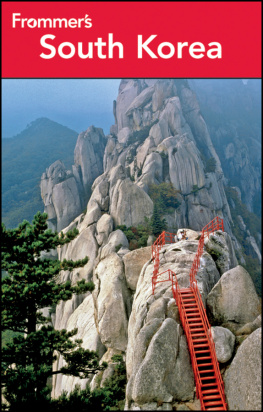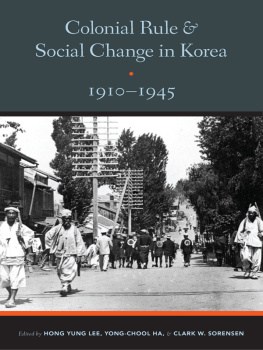First published in 1993 by Garland Publishing, Inc.
This edition first published in 2018
by Routledge
2 Park Square, Milton Park, Abingdon, Oxon OX14 4RN
and by Routledge
711 Third Avenue, New York, NY 10017
Routledge is an imprint of the Taylor & Francis Group, an informa business
1993 Don Adams and Esther E. Gottlieb
All rights reserved. No part of this book may be reprinted or reproduced or utilised in any form or by any electronic, mechanical, or other means, now known or hereafter invented, including photocopying and recording, or in any information storage or retrieval system, without permission in writing from the publishers.
Trademark notice: Product or corporate names may be trademarks or registered trademarks, and are used only for identification and explanation without intent to infringe.
British Library Cataloguing in Publication Data
A catalogue record for this book is available from the British Library
ISBN: 978-1-138-30826-8 (Set)
ISBN: 978-1-315-14674-4 (Set) (ebk)
ISBN: 978-1-138-31006-3 (Volume 7) (hbk)
ISBN: 978-1-315-14393-4 (Volume 7) (ebk)
Publishers Note
The publisher has gone to great lengths to ensure the quality of this reprint but points out that some imperfections in the original copies may be apparent.
Disclaimer
The publisher has made every effort to trace copyright holders and would welcome correspondence from those they have been unable to trace.
EDUCATION AND SOCIAL CHANGE IN KOREA
Don Adams
Esther E. Gottlieb
1993 Don Adams and Esther E. Gottlieb
All rights reserved
Library of Congress Cataloging-in-Publication Data
Adams, Donald K., 1925-
Education and social change in Korea / by Don Adams, Esther E. Gottlieb
p. cm. (Garland reference library of social science ; vol. 513. Reference books in international education; vol. 23)
Includes bibliographical references.
ISBN 0-8240-6635-9 (alk. paper)
1. EducationSocial aspectsKorea (South) 2. EducationPolitical
aspectsKorea (South) 3. Education and stateKorea (South) I. Gottlieb,
Esther E. II. Title. III. Series: Garland reference library of social science;
v. 513. IV. Series: Garland reference library of social science. Reference
books in international education; vol 23.
LC191.8.K6A33 1993
370.19'095195dc20
92-36748
CIP
SERIES EDITORS FOREWORD
This series of scholarly works in comparative and international education has grown well beyond the initial conception of a collection of reference books. Although retaining its original purpose of providing a resource to scholars, students, and a variety of other professionals who need to understand the role played by education in various societies or regions of the world, it also strives to provide up-to-date information on a wide variety of selected educational issues, problems and experiments within an international context
Contributors to this series are well-known scholars who have devoted their professional lives to the study of their specialization. Without exception these men and women possess an intimate understanding of the subject of their research and writing. Without exception they have not only studied their subject in dusty archives, but they have also lived and travelled widely in their quest for knowledge. In short, they are experts in the best sense of that often overused word.
In our increasingly interdependent world, it is now widely understood that it is a matter of survival that we not only understand better what makes other societies tick, but that we also make a serious effort to understand how others, be they Japanese, German or Chilean, attempt to solve the same kinds of educational problems that we face in North America. As the late George Z.F. Bereday wrote: [E]ducation is a mirror held against the face of a people. Nations may put on blustering shows of strength to conceal public weakness, erect grand facades to conceal shabby backyards, and profess peace while secretly arming for conquest, but how they take care of their children tells unerringly who they are (Comparative Method in Education, New York: Holt, Rinehart & Winston, 1964, p. 5).
Perhaps equally important, however, is the valuable perspective that studying another education system (or its problems) provides us in understanding our own system (or its problems). To step outside of our own limited experience and our commonly held assumptions about schools and learning in order to look back at our system in contrast to another places it in a very different light. To learn, for example, how the Soviet Union or Belgium handles the education of a multilingual society; how the French provide for the funding of a public education; or how the Japanese control admissions into their universities enables us to understand that there are alternatives to our own familiar way of doing things. Not that we can often borrow directly from other societies; indeed, educational arrangements are inevitably a reflection of deeply rooted political, economic and cultural factors that are unique to a society. But a conscious recognition that there are other ways of doing things can serve to open our minds and provoke our imaginations in ways that can result in new approaches that we would not have otherwise considered.
Since this series is intended to be a useful research tool, the editor and contributors welcome suggestions for future volumes as well as ways in which this series can be improved.
Edward R. Beauchamp
University of Hawaii








